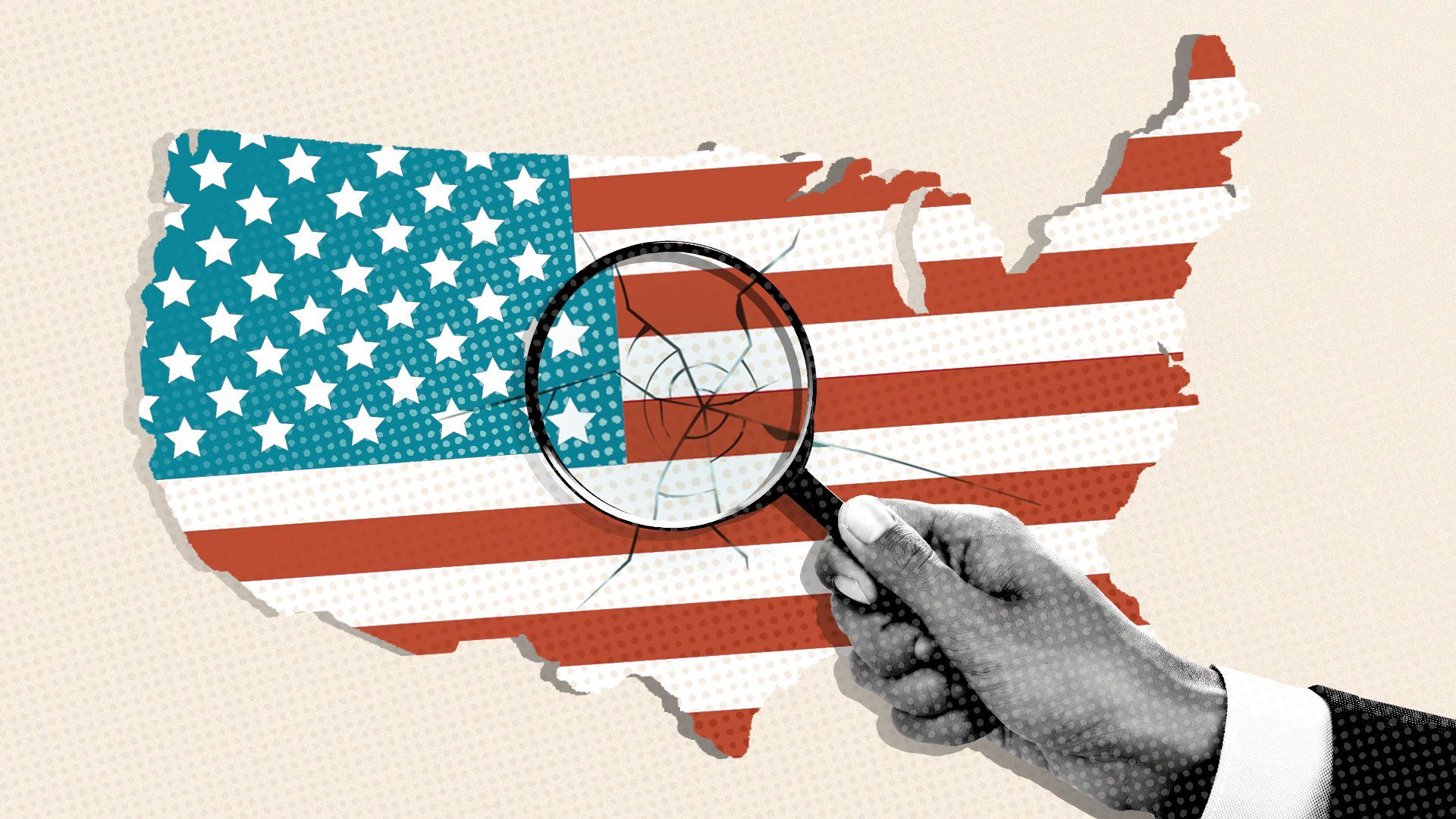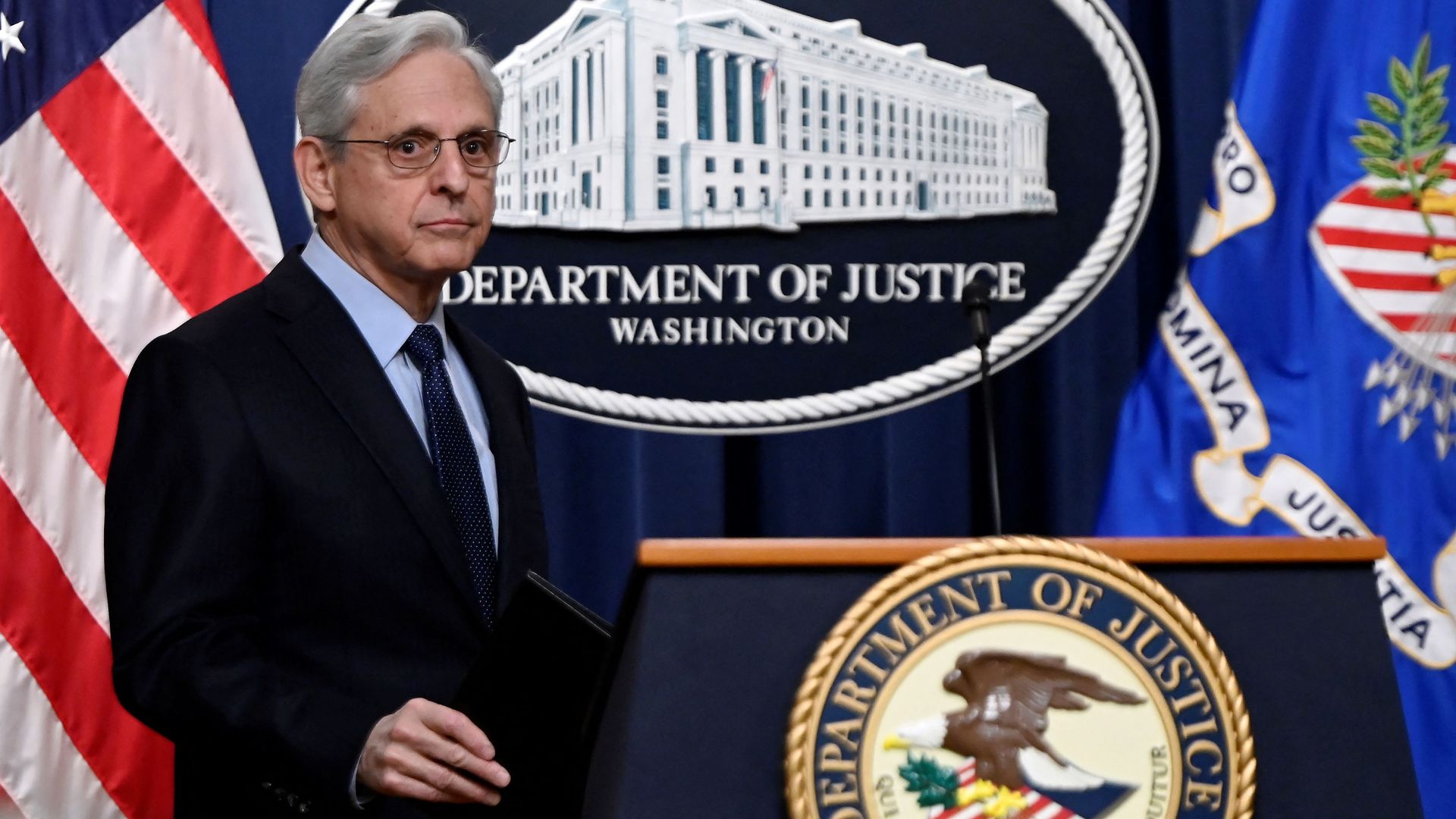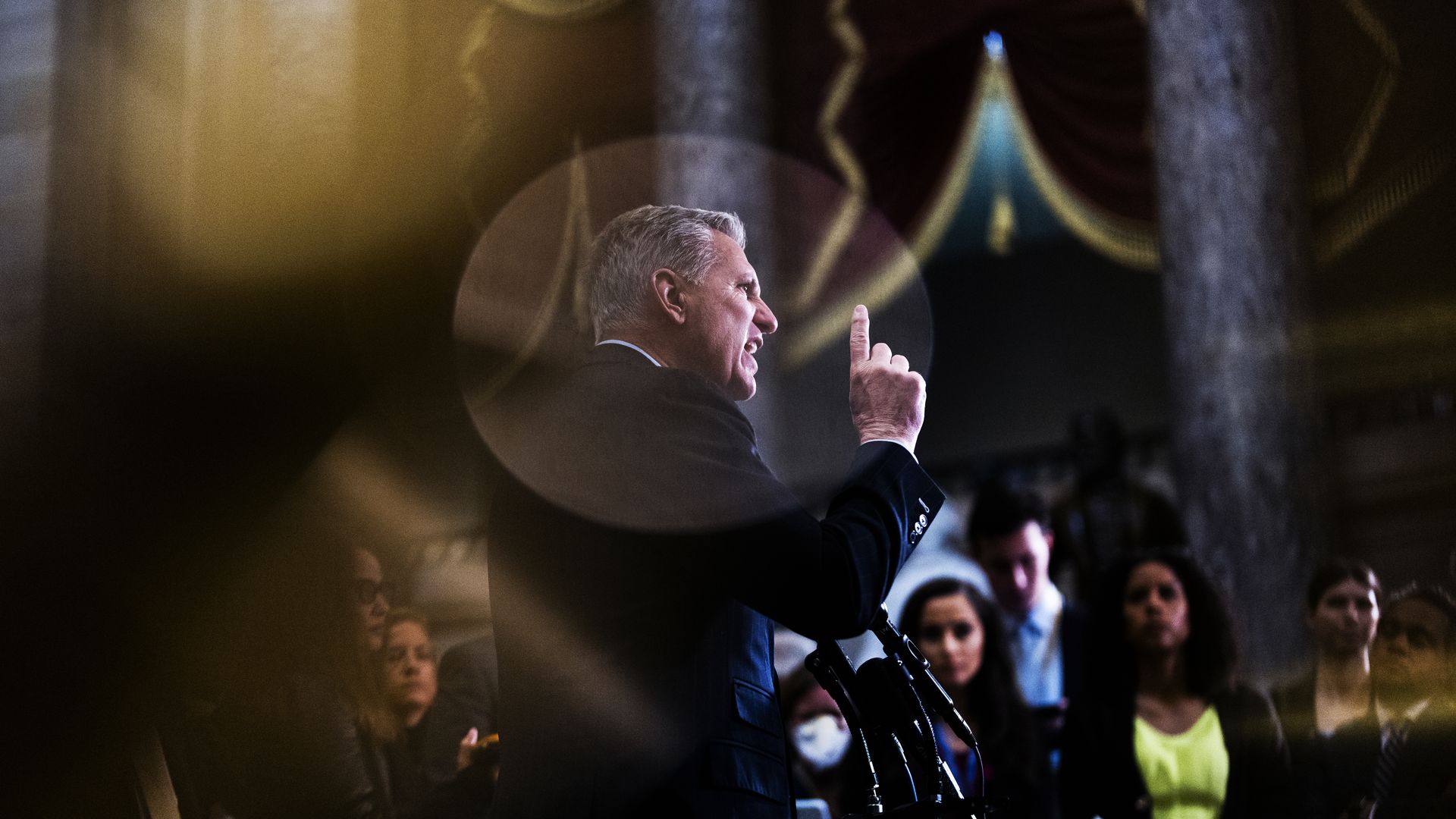Plus: Timeline of Biden probe | Thursday, January 12, 2023
| | | | | | | Presented By Coinbase | | | | Axios Sneak Peek | | By Hans Nichols and Zachary Basu · Jan 12, 2023 | | Welcome to Sneak. Smart Brevity™ count: 914 words ... 3.5 minutes. | | | | | | 1 big thing: The era of special counsels |  | | | Illustration: Allie Carl/Axios | | | | Look no further than the last half-decade at the Justice Department for a snapshot of America's polarized politics: - 2017: Robert Mueller is appointed by deputy attorney general Rod Rosenstein to investigate the 2016 Trump campaign's ties to Russia.
- 2020: John Durham is appointed by Attorney General Bill Barr to "investigate the investigators" for possible abuses during the Russia probe.
- 2022: Jack Smith is appointed by Attorney General Merrick Garland to investigate Trump's handling of classified documents and efforts to overturn the 2020 election.
- 2023: Robert Hur is appointed by Garland to investigate President Biden's handling of classified documents.
Why it matters: The whiplash of the last five years has brought us to an unprecedented moment in U.S. history: Two special counsels are now investigating two presidents who ran against each other in the last election — with a high likelihood they will do so again in 2024. Driving the news: Garland said today that he "strongly" believes normal DOJ processes could have handled the Biden investigation "with integrity" — but that "extraordinary circumstances" led him to conclude a special counsel was necessary. - Garland didn't elaborate, but those circumstances undoubtedly include his decision less than two months earlier to appoint a special counsel to investigate Biden's chief political rival over his own classified documents scandal.
- The distinctions between the Trump and Biden cases are significant, but just the presence of the files at Biden's private office and Delaware home has provided a massive political gift to Republicans.
Between the lines: Trump's war on institutions — and Democrats' response to a figure they view as uniquely dangerous — has fostered a system in which virtually any investigation of a politician is seen through a partisan lens. - Garland, a former federal judge, has been painstaking in his efforts to avoid the slightest possible appearance of politicization.
- He specifically chose Trump-appointed U.S. attorneys to conduct both the initial review of Biden's classified documents and the subsequent special counsel inquiry.
- Some former federal prosecutors have expressed skepticism that the appointment of a special counsel — which DOJ regulations say is warranted if there is a basis for a "criminal" investigation — was necessary based on the known facts.
The bottom line: None of these careful steps are likely to placate Republicans who see Garland as a partisan attack dog — and have made investigating the "weaponization of the federal government" a top priority of the new Congress. Share this story. |     | | | | | | 2. 🔎 What we know so far |  Data: Axios research; Chart: Axios Visuals There is a universe of fewer than two dozen aides who worked in then-Vice President Biden's official office during the Obama administration, providing a narrow pool of witnesses for special counsel Hur to target, Axios' Sophia Cai reports. - A few, including assistant Kathy Chung, have already been interviewed by federal authorities, NBC reported.
The big picture: The Justice Department has a high standard for prosecuting people who mishandle highly sensitive government documents, and a sitting president cannot be indicted. As the FBI has laid out, previous prosecutions involved some combination of the following four factors: - Clearly intentional and willful mishandling of classified information.
- Vast quantities of materials exposed in such a way as to support an inference of intentional misconduct.
- Disloyalty to the United States.
- Efforts to obstruct the investigation.
Share this story. |     | | | | | | 3.❓What we don't know |  | | | Attorney General Merrick Garland. Photo: Olivier Douliery/AFP via Getty Images | | | | White House press secretary Karine Jean-Pierre deflected or declined to answer a number of questions about the Biden documents during today's press briefing, citing an "ongoing process." Five unanswered questions: - How and why did the documents get to each location?
- Why did it take over two months to disclose the matter to the public after the first document discovery?
- Why didn't the White House confirm a second set of documents was found after revealing the first?
- Why did Biden's lawyers search his home instead of the FBI/DOJ?
- Is Biden willing to be interviewed by the special counsel?
|     | | | | | | A message from Coinbase | | Restoring trust through regulatory clarity | | |  | | | | Now is the time to create clear rules and a level playing field while preserving crypto innovation. The reason: Regulatory clarity can help restore trust as we move into 2023. Get the insights from Coinbase. | | | | | | 4. ☀️ Focus groups: Florida swing voters picky on GOP probes |  | | | Illustration: Eniola Odetunde/Axios | | | | Florida swing voters are skeptical of the broad array of GOP investigations now that they've retaken the House majority, Alexi McCammond reports from the latest Axios Engagious/Schlesinger focus groups. - They do see legitimacy in holding the administration accountable for the crisis at the southern border and applying extra scrutiny to law enforcement agencies given how much power they hold.
- But they don't have much appetite to go after Hunter Biden, Anthony Fauci, the U.S. withdrawal from Afghanistan or whether Twitter leaned left before Elon Musk's acquisition.
Keep reading. |     | | | | | | 5. ✍️ Bookmark: McCarthy's entitlements pledge |  | | | Photo: Tom Williams/CQ-Roll Call via Getty Images | | | | House Speaker Kevin McCarthy (R-Calif.) told reporters that Republicans "will always protect Medicare and Social Security" and said he wants to sit down with President Biden to discuss a deal to avoid a debt-ceiling crisis. |     | | | | | | A message from Coinbase | | Moving the crypto industry forward, together | | |  | | | | Companies, policymakers, regulators and customers can work in tandem to move the crypto industry forward amid unease. Here's how: Achieve early, easy wins and restore industry trust through new workable crypto legislation. Learn more. | | | | 📬 Thanks for reading this week. This newsletter was edited by Zachary Basu and copy edited by Kathie Bozanich. |  | | Are you a fan of this email format? Your essential communications — to staff, clients and other stakeholders — can have the same style. Axios HQ, a powerful platform, will help you do it. | | | | | | Axios thanks our partners for supporting our newsletters.
Sponsorship has no influence on editorial content. Axios, 3100 Clarendon Blvd, Arlington VA 22201 | | | You received this email because you signed up for newsletters from Axios.
To stop receiving this newsletter, unsubscribe or manage your email preferences. | | | Was this email forwarded to you?
Sign up now to get Axios in your inbox. | | | | Follow Axios on social media:    | | | | | |











No comments:
Post a Comment